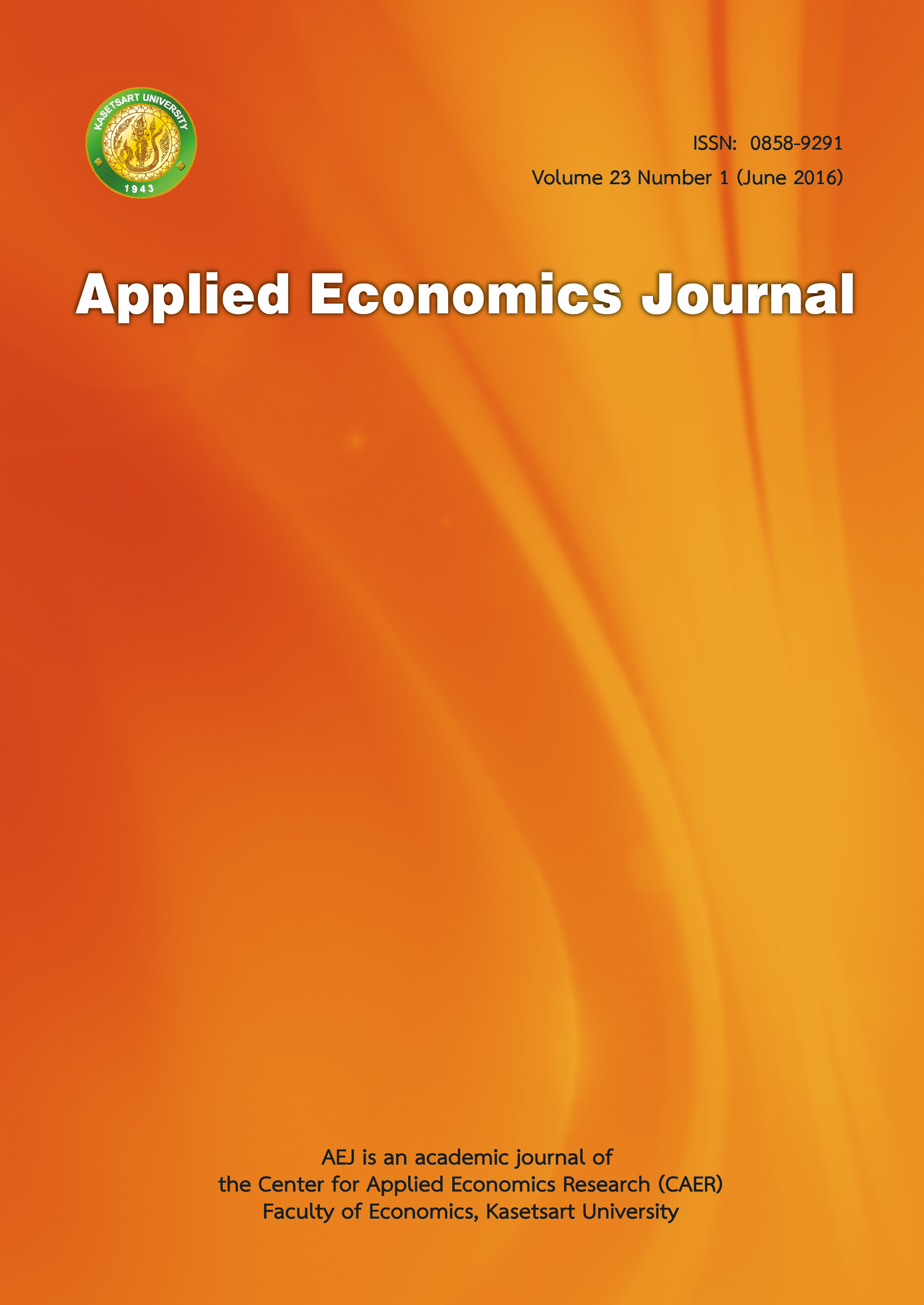Economics of Pre-Primary Education in Thailand
Main Article Content
Abstract
Several research papers have assessed the long-term benefits of pre-primary education in terms of academic performance and labor market outcomes. This study analyzes data obtained from the Program for International Student Assessment (PISA) to estimate the effects of preschool enrollment of Thai students on producing long-term benefits in their academic performance. Results show that a mother’s educational attainment has a significant impact on the decision to enroll her child in preschool. Regarding the long-term benefits, our findings show that pre-primary education bears a significant and positive association with cognitive skills in all three areas of literacy tested under PISA, namely, reading, mathematics, and the sciences. Regarding the economic status of students’ families, results indicate that the benefits of pre-primary education in cognitive skill improvement tend to be greatest in the case of students from low- to middle-income families. Evidence supports the promotion of long-term benefits of pre-primary education and, thus, the universal early childhood education policy. In particular, support should be given to childhood education programs that specifically target children from disadvantaged groups and low-income households.
Article Details
The paper is published under CC BY-NC-ND, in which the article is freely downloaded and shared in its original form non-commercially and its citation details are identified.


